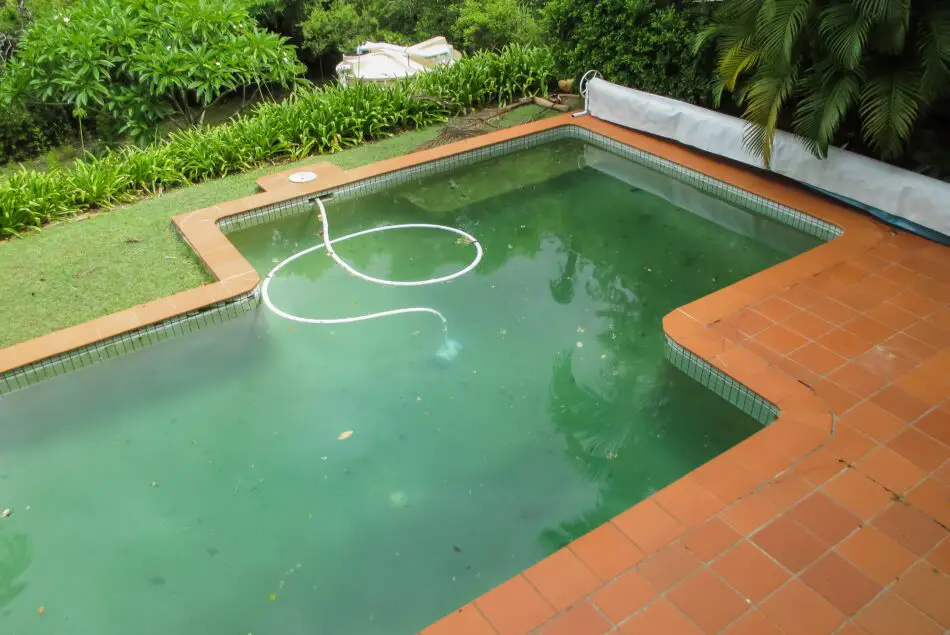
Pool algae is an unfortunate yet common problem many pool owners face. This article describes the types of algae and how you can prevent it.
There are few things that can stop a pool party altogether—one of these things is cloudy pool water. Cloudy water can be potentially dangerous, so never swim if your water looks less than clear. Testing your pool chemistry can determine whether this issue is caused by a chemical imbalance or whether your problem is algae.
Cloudy pool water is simply the presence of something that in not meant to be in the water. Whether it is dirt, algae or too much of a certain chemical, it’s an issue that can seem to occur overnight.
Pools may get cloudy because of a poor filtration system–if your pool gets cloudy, be sure to replace the filter and ensure your pump is properly circulating water.
The cause of your cloudy water is easily determined by the color of your pool. If the water takes on a green or yellowish color, your problem is very likely algae. The easiest way to treat algae is to use a calcium hypochlorite treatment, or in simple terms, using a pool shock.
Take a look at our article on how to remove algae to help treat your case of pool algae.

Pool algae is an unfortunate yet common problem many pool owners face. This article describes the types of algae and how you can prevent it.
If your water takes on a colorless or white-ish cloudiness, your problem may be chemical. Test your pool water using test strips to find which chemical is causing the issue.
A simple way to clear your pool is to use a clarifier. A clarifier works with your pool filter to bind and catch smaller particles. It can help to clear up excess chemicals and debris in the water. These work best at lower levels of pool cloudiness.
You can also use a flocculant to clear your water. They work much like clarifiers, but the particles are too big to be filtered and will sink to the bottom of your pool. This debris will have to be cleaned manually using a pump.
For more information on how to lower the presence of specific chemicals, visit our post on pool water chemistry. For more information on how to care for your pool, visit our blog on Pool Care.
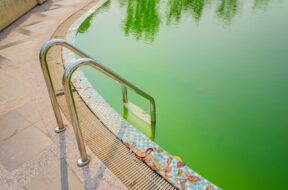
Want to learn more about algaecide? Read on to find out when to add algaecide to your pool maintenance routine and other helpful tips.
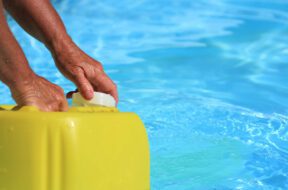
In this quick guide, we’ll answer the question “can you over shock a pool” and unveil the factors to consider when shocking a pool.
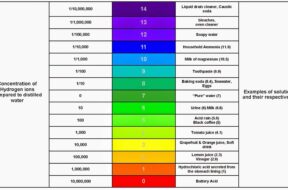
Maintaining both pH and total alkalinity in your swimming pool is important for keeping your pool properly sanitized and non-corrosive. Total alkalinity is to pH what cyanuric acid is to free chlorine. Total alkalinity stabilizes pH levels. The ideal pool pH level is 7.4 to 7.6. The ideal total alkalinity level is 80 to 120 ppm.
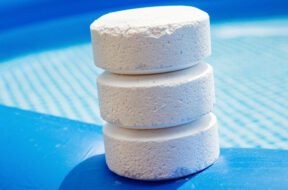
The Association of Pool and Spa Professionals recommends free chlorine levels for both swimming pools and hot tubs be kept between 2.0 and 4.0 ppm. However, the Center for Disease Control recommends free chlorine stay above 1 ppm in pools and 3 ppm in hot tubs.